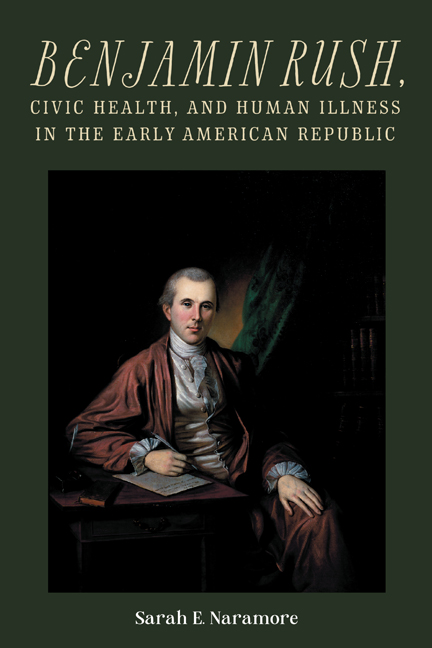4 - Learning from Bodies
Published online by Cambridge University Press: 10 January 2024
Summary
William Baker—a physician in Elkridge, Maryland—wrote to Benjamin Rush in 1770. The letter described a series of medical experiments he conducted as part of his practice. The form of the letter suggested that Baker looked up to Rush as a preceptor-figure despite the fact that the men must have been around the same age—in their mid-twenties. Opportunities for experimentation were rare in the American colonies and were often shared when they occurred. Physicians usually lacked control over the sick and hardly ever had access to enough bodies to make comparisons or broad claims at the same time. The few exceptions occurred in the military, during epidemics, and on plantations with large numbers of enslaved people. Baker's experience fell into the final category. Despite Rush's early antislavery writing and feeling, he willingly used and referenced the work of plantation physicians from published sources from the Caribbean to correspondence, like that of Baker.
Charles Carroll contracted Baker (and the senior physician he studied under, Dr. Howard) to inoculate 110 enslaved people against smallpox. The action certainly saved lives, but Carroll was likely making a financial calculation rather than a moral decision. Smallpox was deadly in the eighteenth century with mortality rates hovering around 10 percent. An outbreak on a plantation with crowded and insufficient housing could be biologically and financially catastrophic. Meanwhile, the immune status granted by either “natural” or inoculated experience with the disease appears in advertisements for enslaved Africans and African-descended people, suggesting their increased value in slave markets. Whatever the reason, Carroll's decision allowed the physicians to have a steady source of work for a few weeks and the control over sick bodies to test out new ideas about therapeutics.
Baker's letter described the circumstances of the inoculations and the follow-up treatment he provided. At the time, doctors debated the best time to inoculate and how to care for patients before and after the procedure. The treatment was introduced to the American colonies in 1716 by an African man known to us as Onesimus. When asked by his enslaver, theologian Cotton Mather of Boston, if he had ever contracted smallpox, Onesimus essentially replied “yes and no” and described the procedure of introducing smallpox to the system on purpose. Mather later promoted the idea during an outbreak in Boston.
- Type
- Chapter
- Information
- Publisher: Boydell & BrewerPrint publication year: 2023

